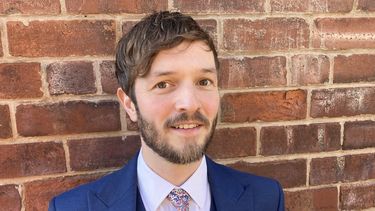Case study - Matt

Who are you and what is your job title and organisation?
Matt Wiltshire, Associate Director, Sustainable Water Management, WSP
What does your job involve?
I manage projects and teams to plan, design and build sustainable flood risk solutions.
How did you find your role and why did you decide to apply?
I started at the Environment Agency on a Graduate Training Scheme in 2009. I gained Chartership with the Institution of Civil Engineers in 2014 and applied for a position as a Flood Risk Engineer with, what was Capita REI and is now WSP after they bought Capita REI in 2022.
How does your role enable you to have a positive impact on the world by supporting the United Nations’ Sustainable Development Goals?
My role enables me to contribute to SDG11: Sustainable Cities and Communities through protection communities to the risk of flooding from increased storm events due to climate change. This in turn delivers SDG3: Good Health and Well-Being which is a key economic benefit to the work that we do. Additionally WSP is a ‘Future Ready’ Consultant - we are driving towards carbon neutrality by 2025 and Net Zero across our supply chain by 2040. You can read more about that here: Going Net Zero at WSP | WSP Both of these demonstrate SDG12: Responsible Consumption and Production drive the development of resilient infrastructure and sustainable industrialisation objectives of the SDG9: Industry, Innovation and Infrastructure goal.
What do you enjoy about your role?
Working with great colleagues who are proactive and want to make a difference to the world around them.
What’s the most challenging part of your role?
Juggling competing demands of budget, programmes, client expectations and time!
What skills/experience are useful in your current role?
Communication is key, even the most technical people can’t succeed unless they can communicate what they are doing. Technical skills are incredibly valuable, whether that is in Geotech or Structural design, but as a Civil Engineer I work on a lot of projects where we are co-ordinating the skills of other people and bringing them together to deliver infrastructure. Team working and communication is key.
What advice would you give to students who are considering a positive impact career?
Be inquisitive, seek out employers who are working on projects and doing things in ethical ways. Try to find key people who work in these organisations and ask them what they are looking for. Don’t be afraid to challenge the accepted norms but understand your market/sector/clients first. Small steps forward and marginal gains can lead to step changes when the right moment comes.
